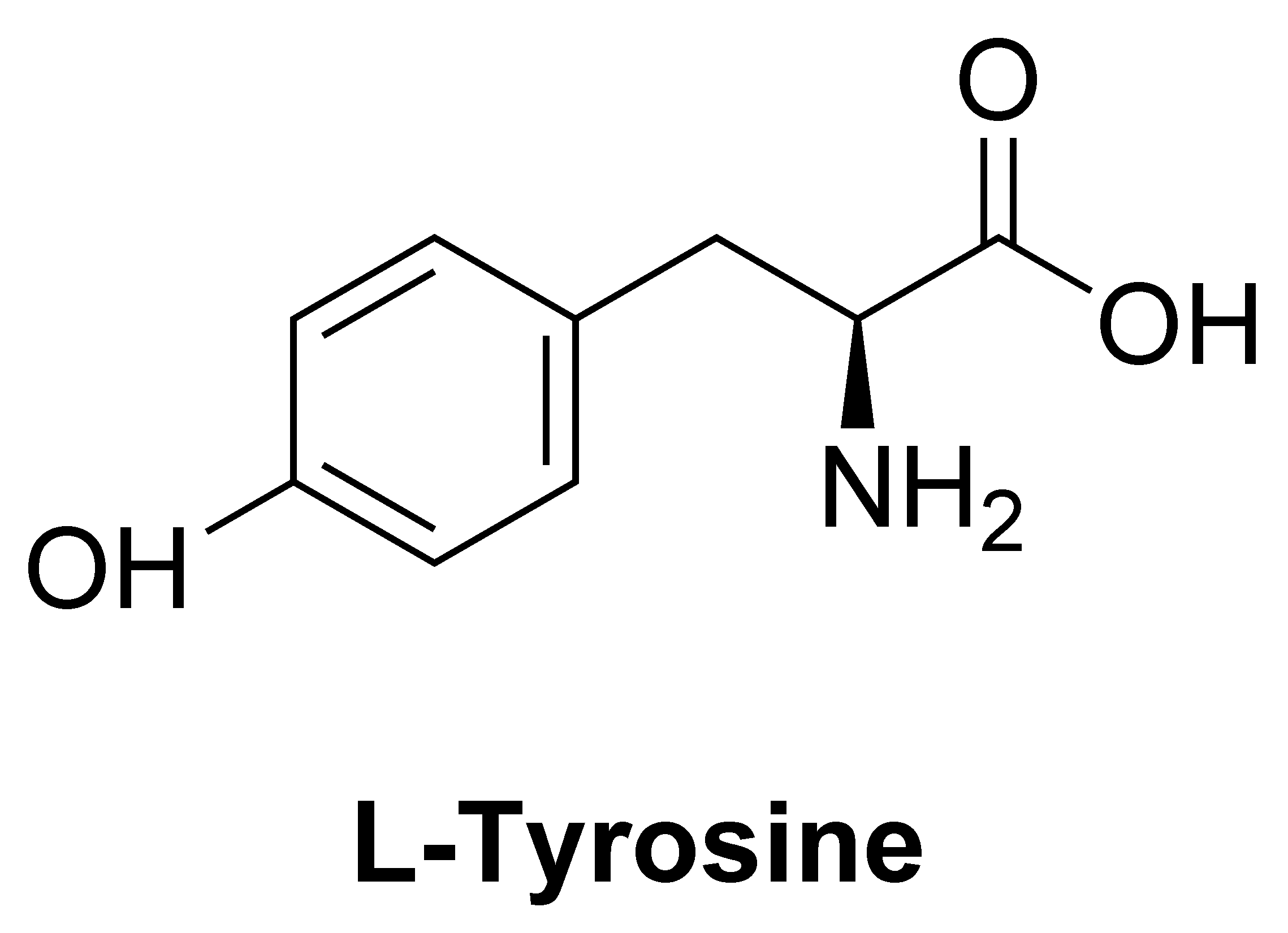I'm trying to draw L-tyrosine with the hydroxyl part of the phenol as HO instead of OH as it appears in the ChemDraw image. Everytime I type in HO, it automatically corrects to OH. I have the settings in ACS Document 1996 style. Is there anyway to make the format render my "backwards" type?
-
1$\begingroup$ I have version 14.0.0.117 and it works as expected: "HO" instead of "OH". It should automatically rotate the labels. $\endgroup$– Martin - マーチン ♦Commented Apr 20, 2016 at 7:37
-
$\begingroup$ I have 15.0.0.106 and I don't think it worked when I had version 14 either. $\endgroup$– user9974Commented Apr 20, 2016 at 7:43
-
1$\begingroup$ The problem with the question is, that it becomes a software issue, that might have a very specific solution. Support might be the best option there. However, as it is working with my version and you have a newer one, I suppose it should work with yours, too. You can find me in Chemistry Chat to talk about it. Have you ticked "File > Preferences > Building/Display > Automatic Atom Label Alignment"? Have you tried entering "OH" instead? $\endgroup$– Martin - マーチン ♦Commented Apr 20, 2016 at 7:55
-
$\begingroup$ Okay, so apparently typing it in as "OH" works. $\endgroup$– user9974Commented Apr 20, 2016 at 8:00
-
$\begingroup$ If you type "HO". Click on it. Go to Text>flush right and it will also fix it. $\endgroup$– user55119Commented Mar 27, 2019 at 16:28
1 Answer
ChemDraw is a piece of software that attempts to be as intelligent as possible. In many cases, that is truly helpful, in others it can be annoying.
When labelling an atom in text mode, ChemDraw will automagically assume a label from left to right (i.e. in standard North American/European writing direction) and interpret the label as such. If it finds that the atom has bonds to the right but none to the left, as tyrosine’s hydroxy group has in your example, it will group the label into ‘sensible’ fragments[1] and reverse them. This makes sense if you think of rotating a molecule: If you had drawn tyrosine rotated by $180^\circ$, you would have wanted to add OH on the rightmost atom, not HO. If you then manually rotate the entire molecule within ChemDraw, you will notice the OH flipping into an HO as soon as it graphically makes sense to do so.
Note that if you just hover over the atom in lasso mode or bond adding mode and then hit o (lowercase!) it will automatically add OH (or HO, depending on the orientation) at that position. Hitting o again will remove the additional hydrogen (this holds true for all chemical elements that are attached to single letters regardless whether the atom is attached to a lowercase letter (i.e. o) or an uppercase one (B for boron)).
[1]: Consider OTBS: ChemDraw automatically recognises TBS as an abbreviation for the $\ce{TBS}$ group so when reversing, it becomes TBSO. However ChemDraw does not standardly recognise the triethylsilyl group $\ce{TES}$, so when reversing OTES it arrives at SETO. The preferred way would be to add an abbreviation to ChemDraw.
-
1$\begingroup$ Note that you can view the known nicknames using File>List Nicknames. You can define your own nicknames using Structure>Define Nickname. Also note that ChemDraw breaks atom labels (not nicknames) into tokens that consists of an uppercase letter followed by any numbers or lowercase letters. Therefore, $\ce{-OH}$ is flipped to $\ce{HO-{}}$, whereas $\ce{-Br}$ is not flipped to $\ce{rB-{}}$. $\endgroup$– user7951Commented Apr 20, 2016 at 11:55
-
1$\begingroup$ @ortho How write you are in assuming a righting error there … ;) $\endgroup$– JanCommented Apr 20, 2016 at 12:01

